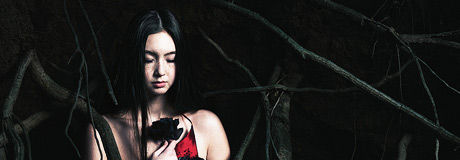
Photo by Alex Stoddard
By Kate Carpenter
“100 years from now – all new people.” – Anne Lamott
Think about that for a minute. Everyone in the world right now will
be gone. Will they have left their mark — had an impact — made a
difference? Maybe.
How much can one person matter when there are almost 7 billion people
on the planet? At any rate, the people who remember them — were
impressed by them, disgusted by them, helped by them, hurt by them,
loved by them, hated by them — will all be gone, too.
What matters most to each of us is what happens to us today … here …
now. The “long run” is of very little consequence. As Ms. Lamott
points out — and as John Maynard Keynes is often quoted (out of context)
as saying — in the long run, we’ll all be dead.
So why are we here at all? Not even the most brilliant minds on the
planet have been able to come up with a definitive answer, although
conjecture has made for some very interesting debate. It would seem
we’re not meant to solve the riddle during our lifetime.
So we all have to come up with our own reason. All we can do is
guess. Maybe we’re here to earn our way into some version of heaven.
Maybe we’re here in one of many incarnations, reaping karma and learning lessons.
Maybe we’re being tested, maybe we’re atoning, or maybe we’re just
being punished — or rewarded. Maybe we’re a fluke of nature: we live, we die, and that’s it – no real point to it whatsoever. Who knows?
I assume that if there is a reason, that reason must be the same for
everyone on earth. But how can that be when there is so much disparity
among the people on the planet? From the billionaire who lives in Trump
Towers with a Jacuzzi and room service to the Ugandan who lives in a
mud hut with no electricity or running water, what is it that we all
have in common?
I know there will be those who’ll argue that life doesn’t guarantee
suffering, and that only pessimists and naysayers would suggest such a
thing. But I have to disagree. Every human being develops attachments
to people, places, and things that can — and ultimately will — be lost
to them.
A basic premise of Buddhist teaching is that it is this very
attachment to earthly things (including our own life) and the ultimate
loss of these things that causes all suffering.
Every faith from Judaism to Islam recognizes suffering as part of
earthly life. And the very foundation of Christianity is the suffering
of Jesus, Mary, and even God Himself.
The only antidote for suffering is love. Compassion,
caring, sympathy, empathy, kindness, concern … these emotions are meant
to alleviate the suffering of those around us. The lack of love is
itself a form of suffering. Love is what we all ultimately have to
offer if we want to matter in this lifetime. Nothing else we
accomplish, acquire, or become is of any importance at all in the end.
So maybe it’s that simple, and this is the purpose of life: to care enough for others to try to alleviate whatever suffering they are going through — to make a positive difference in
their lives in whatever way we can, whether it’s through giving money
or inspiring hope or simply spending a little time to listen.
If we all lived by this principle, life would be both richer and
easier for every one of us. Both the giving and the receiving would
bring the happiness that material possessions promise but never deliver.
And if, at the end, we discover that there was some other “purpose,”
for our life, at least we will have made the journey more bearable for
each other while we were here.About the Author:
 From Kate Carpenter:
I became a simple living groupie in college when I read Living Poor
with Style by Ernest Callenbach in 1972. I started writing about it in
1998. I left the rat race to do it full time in 2010. I love stripping
life down to its fundamentals without any distractions or complications
blurring the focus. My goal every day is to make something simpler,
smaller, or more clearly understood. Life shouldn’t have to be so hard!
From Kate Carpenter:
I became a simple living groupie in college when I read Living Poor
with Style by Ernest Callenbach in 1972. I started writing about it in
1998. I left the rat race to do it full time in 2010. I love stripping
life down to its fundamentals without any distractions or complications
blurring the focus. My goal every day is to make something simpler,
smaller, or more clearly understood. Life shouldn’t have to be so hard!
